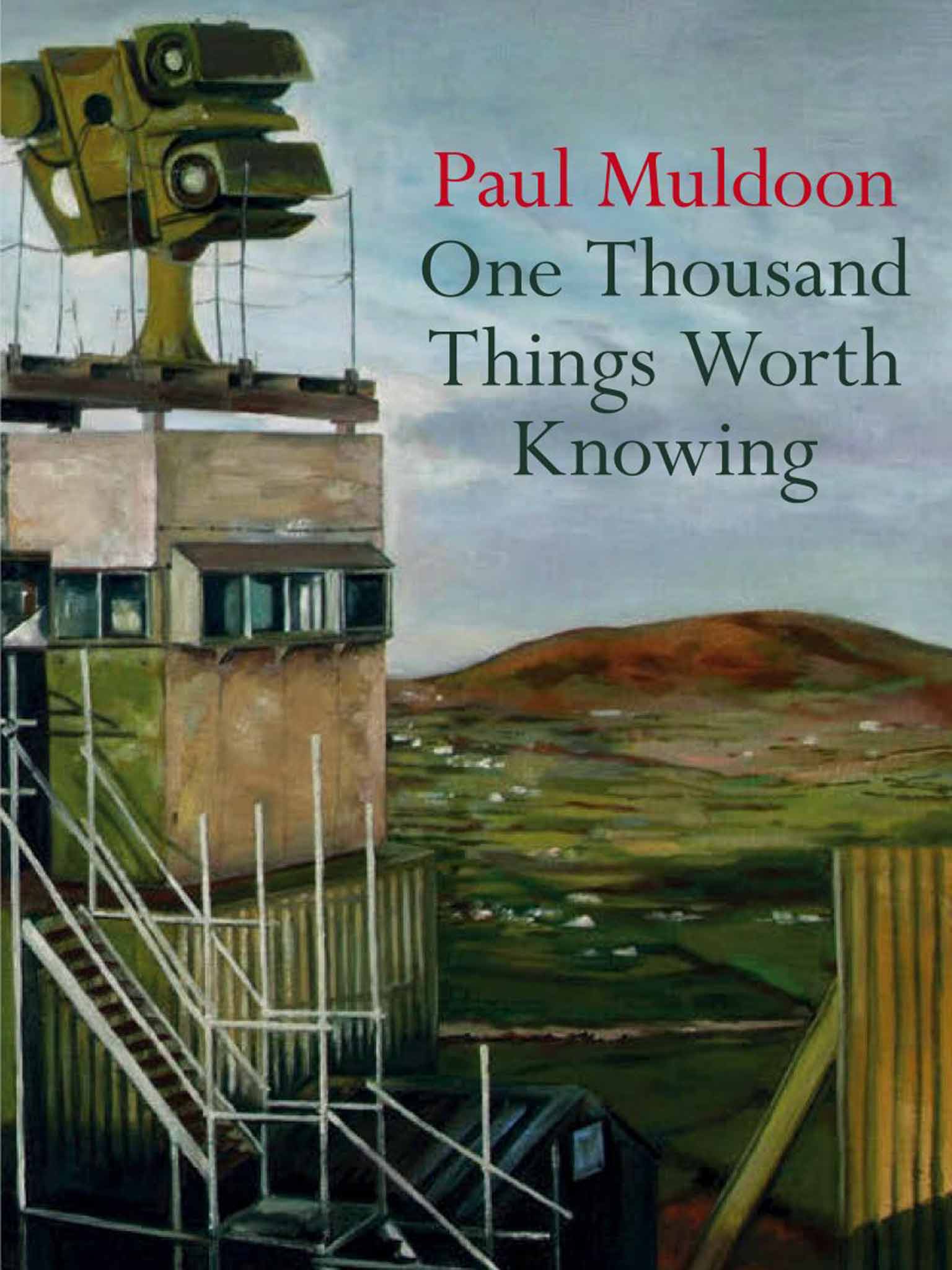One Thousand Things Worth Knowing by Paul Muldoon - book review: Sombre lines of beauty from a supreme trickster
The book places Seamus Heaney within history and contemporary culture.

Your support helps us to tell the story
From reproductive rights to climate change to Big Tech, The Independent is on the ground when the story is developing. Whether it's investigating the financials of Elon Musk's pro-Trump PAC or producing our latest documentary, 'The A Word', which shines a light on the American women fighting for reproductive rights, we know how important it is to parse out the facts from the messaging.
At such a critical moment in US history, we need reporters on the ground. Your donation allows us to keep sending journalists to speak to both sides of the story.
The Independent is trusted by Americans across the entire political spectrum. And unlike many other quality news outlets, we choose not to lock Americans out of our reporting and analysis with paywalls. We believe quality journalism should be available to everyone, paid for by those who can afford it.
Your support makes all the difference.Paul Muldoon's new collection is a stylish volume. Its elegant layout echoes almost subliminally what we have come to expect from this master of the trickster elements within language. But the cover illustration, a painting of a Border Post in Northern Ireland, tells us that something both sombre and actual is going on.
Indeed it is. The long opening poem, the nine-page Cuthbert and the Otters, is a threnody "In memory of Seamus Heaney", which arrives at its keynote on the second page: "I cannot thole the thought of Seamus Heaney dead". The grief is real, and the words it’s expressed in, as ever with Muldoon, are exactly chosen. "Thole" sounds a tolling note as it carries across into English both the sense of endurance, from the Latin tolere, and its second meaning of an oar-pin, with all that suggests of a ship of death. But this lament also brings us a history of Irish culture’s arrival and dispersal, from the saint in his cell to Irish Americans who "still hold a dirge chanter/in the highest esteem."
It’s not the only death-haunted poem in a collection that includes "a seaweed wreath /making the spot where it came to grief", and of a swimming pool "like a coffin". Visiting the prison-island of Château d’If, whose very name reminds us that bad luck is a lottery, the narrator has "switched with a dead man in his bunk/and stitched myself into his burlap shroud". Like the "pink cloud hanging over Barry’s amusement park in Portrush", scenes from yesterday’s Ireland almost crowd out the present.
These other poems seem to be attending to the lament for Heaney, and to the fact of his death. The book places the late laureate within history and contemporary culture. Tutankhamun and grouse shooting, "Yellow Polka Dot Bikini" and Ben Hur, a Massey Ferguson baler and fado: the One Thousand Things… of the title are lined up to pay their respects. And that of course is where a culture-maker should be located by a funeral address: at the very centre of the culture he helped to shape.
But this is a book by Muldoon, so there’s much more to it than simple listing. Cuthbert and the Otters has 27 seven-line stanzas. Why27? Because "In the way that 9 and 3 are a perfect match/an Irish war band has 27 members." Numerology is part of poetry’s trickster magic. But these aren’t tricks. Trickster figures, saints and shamans, have traditionally helped the passage from one life to the next: the lament is one of poetry’s oldest musics. Here it restores not only Seamus Heaney but Paul Muldoon to the great country of living tradition.
Join our commenting forum
Join thought-provoking conversations, follow other Independent readers and see their replies
Comments